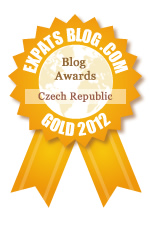
I've wanted to visit Uzbekistan since I was 16 years old. I read a magazine article about the Soviet Union and it talked about how Uzbekistan was home to camels and pineapples. It sounded like such an exotic part of the USSR that it's been on my bucket list ever since. The problem has been getting
a visa. All kinds of paperwork, two days off work to apply and pick up the visa from the Uzbek embassy in Prague or Vienna, plus a $160 fee for Americans. Well there is now an e-visa and a 30 day visa is only $20 so I'm
finally going to Uzbekistan.

The
Republic of Uzbekistan is in
Central Asia. It is the only country that borders all of the other "Stans" -
Kazakhstan,
Kyrgyzstan, Tajikistan, and Turkmenistan. It also shares a border with Afghanistan. Along with
Liechtenstein, it is one of only two double landlocked countries in the world. It is a little bigger than
California.
 O'zbekiston
O'zbekiston is home to more than 32,7 million people. A very young population. In 2008, about 34% of the population was younger than 14. The capital, and largest city is
Tashkent.

The area was famous for the Silk Route that connected the
Middle East with Europe,
India, and
China. During the 19th century the area was conquered and incorporated in to the
Russian Empire. Following the Bolshevik Revolution it became the
Uzbek Soviet Socialist Republic in 1924. Following the break up of the USSR, it declared independence in 1991.
Uzbekistan is a presidential republic but a highly authoritarian one. The first president held office from independence in 1991 until his death in 2016. The former prime minister then took over. Things are starting to open up a bit but it's hard to image that in 28 years there have only been two presidents.

Uzbek is the official language but Russian is commonly spoken as well. In 1940, Soviet authorities mandated that Uzbek be written using the Cyrillic alphabet. In 1993, the country switched back to using Latin script. Apparently there is no language requirement to apply for Uzbek citizenship.
You hear that Czechland?!

Although a secular state, 88% of the population is Muslim, mostly Sunni. About 9% are Eastern Orthodox. As with most Muslim countries this is not a place to be gay. Sex between two men is illegal and punishment ranges from a fine to up to three years in prison.

The currency is the Uzbek Som. Currently 10.000 Som equals $1.05 or €0,95. All of the guest houses that I've booked for my trip in September don't take cards and want to be paid in U.S. Dollars.

The Czechs and Uzbeks are continuing to improve cooperation between the two countries. There are currently about 13 Uzbek-Czech joint ventures in Uzbekistan. More Czech companies are also opening offices in Uzbekistan particularly those in the food and and textile industries, the oil and gas sector and tourism.
Here's a short video I found out on YouTube talking about the country's geography challenges.
©Stratfor.com
 Prof. MUDr. Jan Janský (3 April 1873 - 8 September 1921) discovered blood types. He was born in Černošice and studied medicine in Prague at Charles University. During WWI he served as a doctor on the front. After the war he worked at a military hospital as a neuropsychiatrist.
Prof. MUDr. Jan Janský (3 April 1873 - 8 September 1921) discovered blood types. He was born in Černošice and studied medicine in Prague at Charles University. During WWI he served as a doctor on the front. After the war he worked at a military hospital as a neuropsychiatrist.

 In Slovakia, the Slovak Red Cross awards plaques. Women earn a Gold Plaque after 30 donations. Nothing for men. The Diamond Plaque is awarded to women after 60 donations and to men after 80 donations.
In Slovakia, the Slovak Red Cross awards plaques. Women earn a Gold Plaque after 30 donations. Nothing for men. The Diamond Plaque is awarded to women after 60 donations and to men after 80 donations.



















































